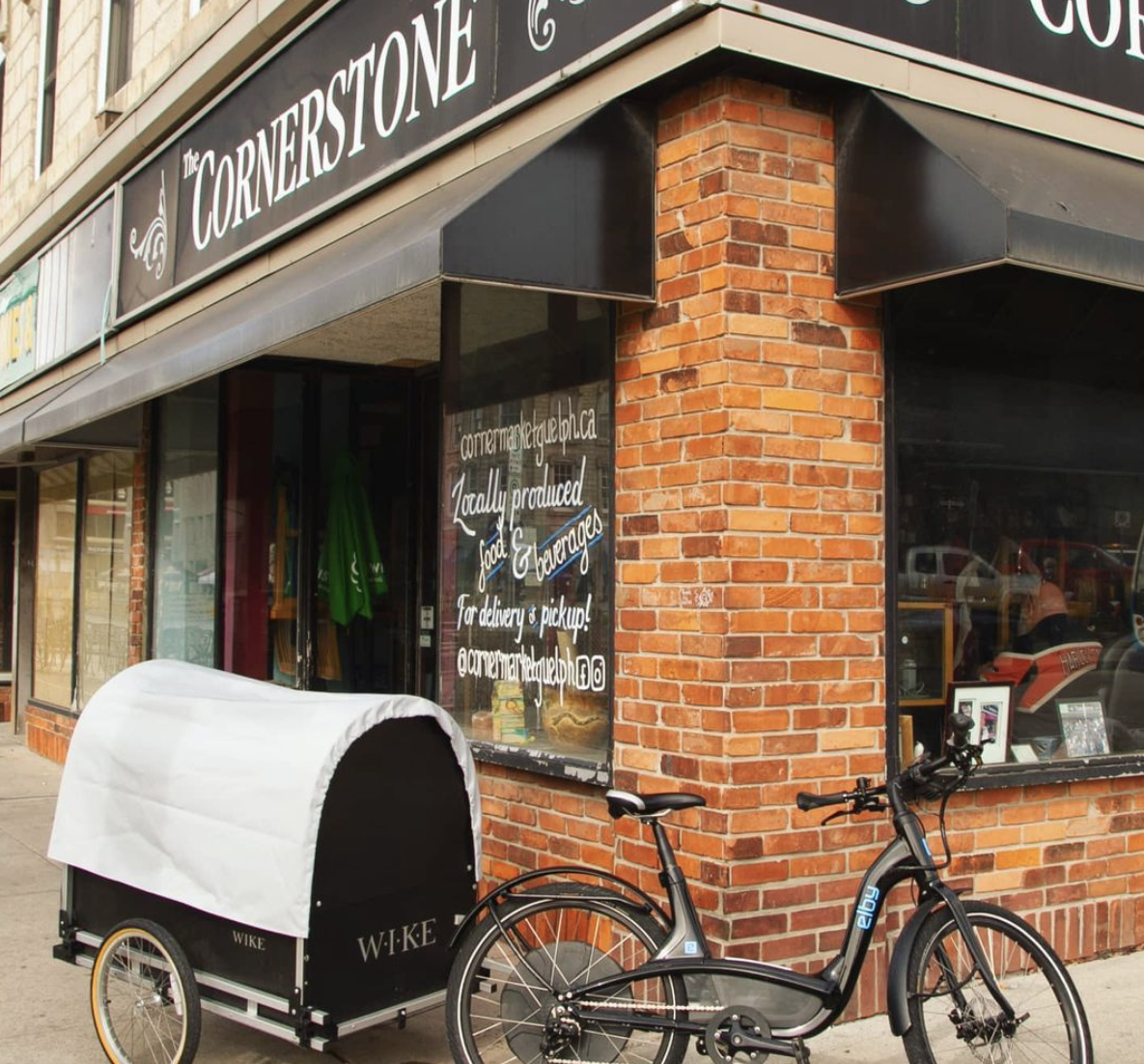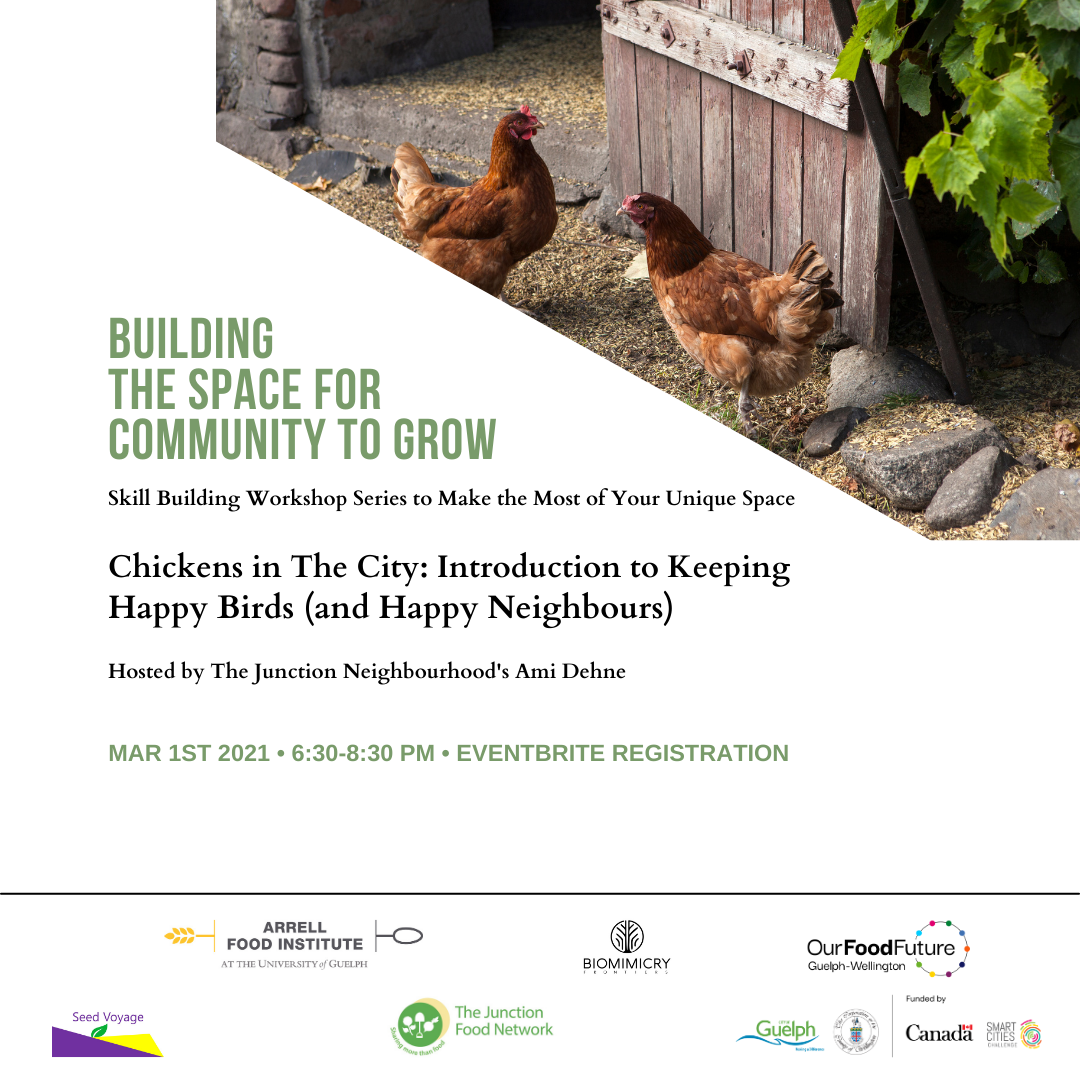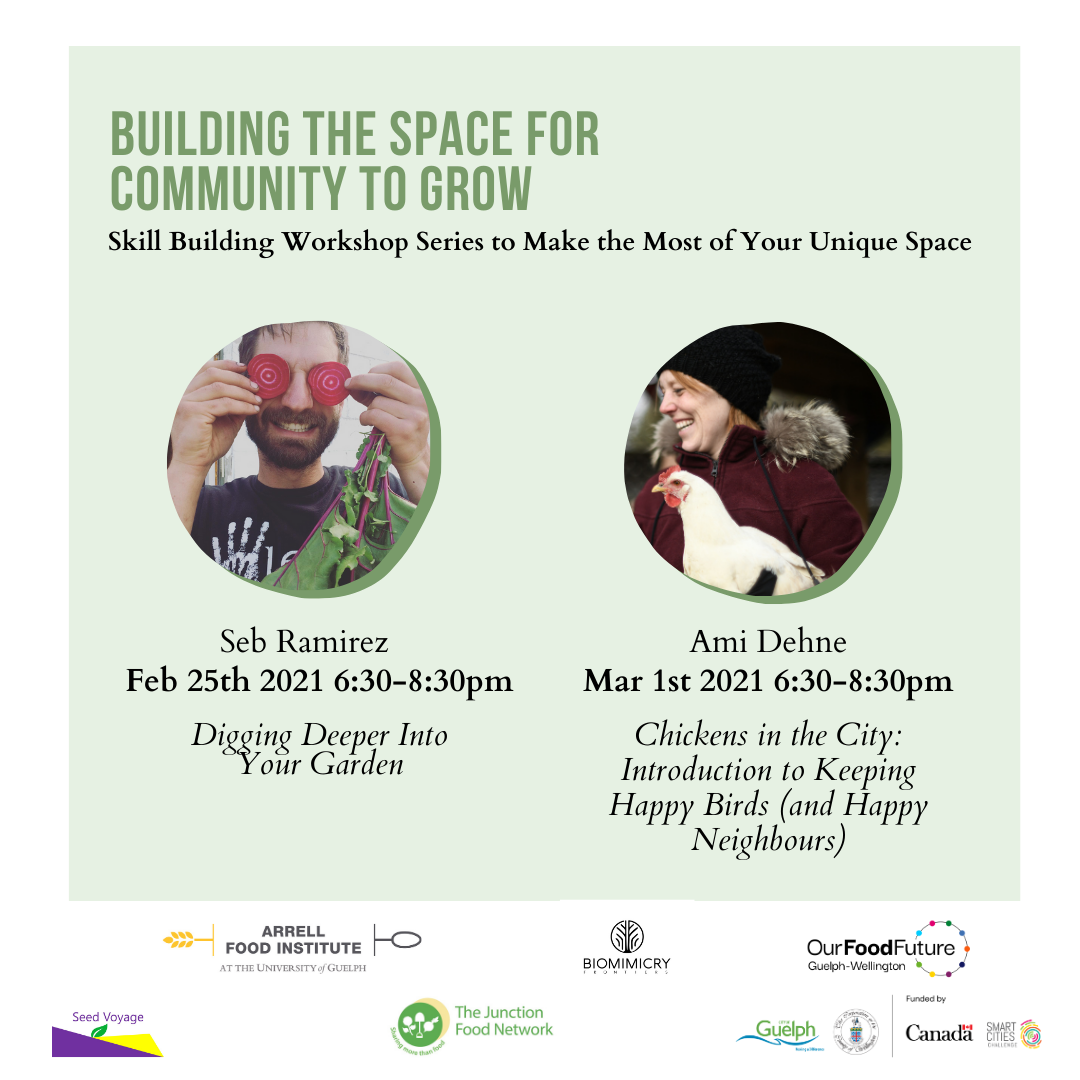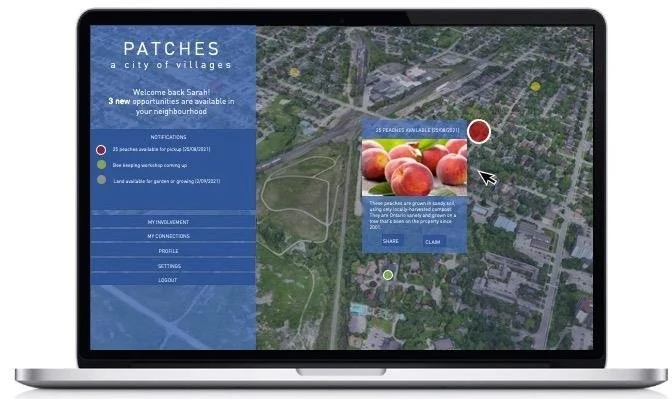BIOMIMICRY FRONTIERS & CANADA’S FIRST CIRCULAR FOOD ECONOMY
Background
On March 05, 2019, the City of Guelph and Wellington County, in collaboration with 150 community partners, prepared a joint proposal for the Smart Cities Challenge. The Smart Cities Challenge was a Canada-wide competition that encouraged communities to adopt a smart cities approach through innovation, data, and technology. On May 14, 2019, the proposal submitted by the City of Guelph and Wellington County was successful in the category for cities with populations under 500,000, and the community was awarded $10 million by Infrastructure Canada. As Guelph/Wellington is renowned for its agricultural pursuits, the focus of the proposal was creating a circular economy surrounding food.
The Goal
Guelph/Wellington is seeking to become Canada’s first technology-enabled Circular Food Economy. Their ultimate goal is 50x50x50 by 2025: create 50 new circular businesses and collaborations, increase the revenue of circular economic businesses by 50%, and increase access to affordable, nutritious food by 50%. Waste is to be looked at as a resource, enabling a food-secure ecosystem for our communities.
Biomimicry reminds us that there is no waste out in nature, and to truly imitate nature, we must eliminate waste. Biomimicry Frontiers was brought into the Our Food Future initiative to frame the project from a biomimetic lens and to use the opportunity to build circular businesses, while simultaneously providing advisory services.
COVID-19 Pivot | Local Food and Zero-Emission Transportation
As the Biomimicry Frontiers team was beginning their work for Our Food Future, the Covid-19 pandemic struck and the demand for food delivery and online grocery orders skyrocketed. Under the circumstances, Biomimicry Frontiers pivoted our original proposed project for the Our Food Future initiative to best support our community. We connected with a local restaurant that was closed and not offering take-out and helped them transition into a market of fresh, local, affordable food. The restaurant began to act as a Guelph delivery point for healthy groceries and premade Vegan meals. As a result, the restaurant was able to hire back some of its employees. All grocery deliveries within a certain radius were completed using electric bicycles, allowing the deliveries to be completed using a zero-emission mode of transportation. For this initiative, Biomimicry Frontiers acted as project liaison, connecting community partners, and assisting in planning the transition. We helped a local business shift their business model to thrive during the pandemic shift by offering healthy, local food, with no emission delivery to our local community.
Junction Food Network || Seed Voyage
At Biomimicry Frontiers, we draw on nature to frame our solutions. In this case, we used patch dynamic, which is an ecological framework for viewing complex (eco)systems. For Guelph, we focused on unique neighbourhoods and their characteristics to highlight their attributes, which we called a City of Villages. These sub-ecosystems can be studied effectively as patches that differ in characteristics, boundaries, and compositions. It highlights the uniqueness of each neighbourhood within the larger mosaic of the City of Guelph.
To begin to sow local resiliency, we chose the Junction neighbourhood as our first “patch”. Located at the heart of the city, the Junction neighbourhood is filled with mature foliage, distinctive homes, and front porches where neighbours intentionally build community. The goal was to look at the Junction in terms of its flows, assets, resources, and opportunities. Food has been a core feature in building this grassroots neighbourhood.
For the Junction neighbourhood patch, we brought community leaders together to help support localized food production and leverage hidden neighbourhood assets. Together, the community created the Junction Food Network which seeks to encourage the neighbourhood to eat local produce, connect with each other and reduce food waste through the integration of Seed Voyage. Seed Voyage is an online platform that effortlessly connects home food growers with the eaters that appreciate the freshness of ultra-local fruits and veggies. The platform allows home gardeners to sell (or donate) the foods they are growing directly to their neighbours. When it’s harvest season, a grower will send out a notification to anyone signed up (“the eaters”) who has a matching preference. Once the eater is notified, they can choose to purchase a basket at the click of a button and then pick up the bundle at the growers' house. Seed Voyage requires no physical contact and helps eliminate food waste.
In partnership with the City of Guelph, a baseline map of the Junction was developed. It includes businesses, accessible fruit trees, infrastructure and property lines as well as the participants of the Junction Food Network survey. To build on this, we proposed building a more resilient food community by mapping out who grows what and where and using the local ecology to more strategically plant and interface with the environment. We want to create more diversity. Instead of everyone growing too many cherry tomatoes, the map will help visualize the hidden assets of everyone’s back yards so that we can more strategically coordinate. Ami has chickens in her backyard. Tom has an apiary. Susan has incredible cherry trees. Instead of everyone growing the same thing, the map helps us coordinate and share, to create greater food resilience within our patch and decreasing our dependence on a linear food system (which COVID-19 proved was relatively fragile.
We want to make the food system in the Junction more resilient by building up the local capacity for food growth and distribution. We do this by visualizing who is growing what (and who is buying what), by mapping what could grow where (based on ecosystem data) and by encouraging connections.
Biomimicry Frontiers circular economy food map and sharing system - “Patches”
The Junction Food Network is also responsible for gathering community data on gardens and hosting workshops on proper garden care and caring for chickens.
Biomimicry Frontiers also assisted in the creation of a circular baking business that is taking locally-grown hops, currently being sold to Fixed Gear - a craft brewery located in the Junction- to help with their brewing process. The local baker will be offering the community bread made with leftover malted barley from the brewery to ensure those spent grains don’t go to waste.
Resources
Our Food Future https://foodfuture.ca/
Junction Food Network https://www.instagram.com/junctionfoodnetwork/
Seed Voyage https://www.seedvoyage.com/






